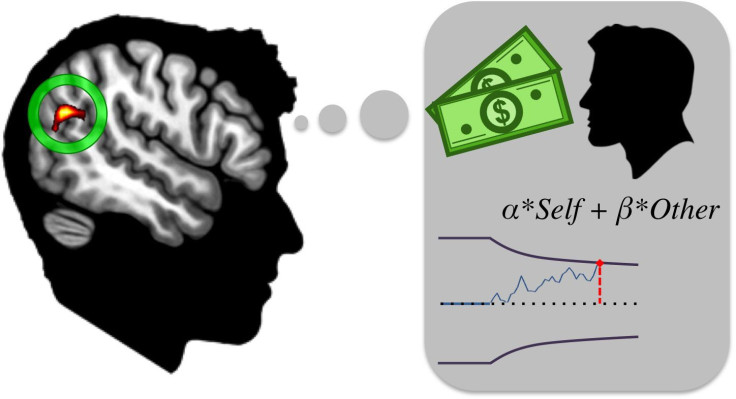Charitable Giving May Not Be Rewarding When It Comes Naturally, But Making The Tough Decision To Be Unselfish Is

A new model designed by scientists at CalTech identifies the region of the brain involved in altruistic decision-making and also predicts when someone will act generously in the most difficult of circumstances: sacrificing money to a stranger. The work helps explain why being generous can feel so darn hard.
"If you consider the other person's needs more, being generous feels easy. If you consider yourself more, generosity requires a lot of effort,” Dr. Cendri Hutcherson, lead author and now director of the Decision Neuroscience Lab at the University of Toronto, stated in a press release.
Since time immemorial, academics have debated the reasons why people act altruistically. Some believe humans naturally find generosity rewarding; we only act selfishly when we pause to think about it, they say. Others say people are innately selfish and the only way to override greedy tendencies is to exercise self-control. For the current study, then, the researchers designed a brain scan study to see which of the above explanations fit the bill.
Specifically, Hutcherson and her colleagues began by taking “a very simple model of choice that's been developed for predicting perceptual decisions — like whether a dot is moving left or right — and [adapting] it to capture generosity,” explained Hutcherson, who worked on the study while still a postdoc at CalTech.
Having created a modified version of the “Dictator Game,” the research team then enlisted the help of 51 male participants to play it. After being paired with a stranger, each participant was asked whether he would be willing to sacrifice different amounts so that the stranger could get a significantly larger pay-out (for example, lose $25 so the other person receives an extra $100). Told they would never meet the stranger again, each participant made 180 total decisions for which they received real money. (Ooo lala!) Meanwhile, the crafty researchers scanned participants’ brains as they made their many decisions.
Mine!
Unsurprisingly, most people were greedy. However, at times even the most selfish participants made generous decisions. The researchers see these choices not as evidence of self-control, as past research suggested, but simply mistakes — a moment when selfish benefit was accidently underweighted. Time pressure, say the researchers, could be one way to get people to behave out of character and get them to give.
Analyzing the brain scans, the researchers were able to identify brain areas that corresponded to either a participant’s own interests or others' interests. Self-oriented values linked to activity in the ventral striatum, an area implicated in basic reward processing. Other-oriented values matched with the temporoparietal junction, which plays a role in empathy.
Hutcherson believes the model sheds light on whether an act of generosity is inherently rewarding.
“Researchers have observed that if you act generously then you see greater activity in areas of the brain that represent reward value,” Hutcherson said. These researchers of the past mistakenly interpreted such results to mean generosity is rewarding.
“But our model actually suggests … you would see more activation in reward areas simply because the decision is complex and so requires more processing to make,” she said. In other words, facing and making a tough decision feels good once you’ve done it, no altruism necessary.
Source: Hutcherson CA, Bushong B, Rangel A. A Neurocomputational Model of Altruistic Choice and Its Implications. Neuron. 2015.



























